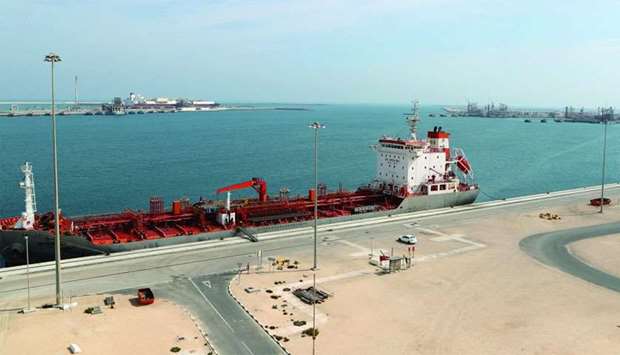*The country's economic growth in terms of nominal GDP will reach 4.9% in 2023 from 4.4% by the end-2019
Qatar’s merchandise trade balance will scale up over the next four years and account for $53.4bn in 2023, a new report has shown.
This year, it will account for $46.8bn, FocusEconomics said in its latest country report.
The current account balance (as a percentage of the country’s GDP) will be 7.8% in 2023 compared with 7% this year.
Qatar’s gross domestic product is expected to reach $218bn by 2023, it said. By the year-end, Qatar’s GDP will total $178bn.
The country's economic growth in terms of nominal GDP will reach 4.9% in 2023 from 4.4% by the end-2019.
Qatar’s fiscal balance (as a percentage of the country’s GDP) has been estimated at 3.4% in 2023 compared to -0.2% this year.
The report has projected Qatar’s international reserves at $31.1bn this year and $35.2bn in 2023.
The international reserves will cover 8.7 months of imports in 2023 as against 10.6 months this year, FocusEconomics said.
The country’s inflation, the report noted, will be around 2% in 2023 from 1.6% this year.
Qatar’s unemployment rate (as a percentage of active population) will stay at a meagre 0.2% in 2023, unchanged from this year.
It has estimated Qatar's public debt (as a percentage of the country’s GDP) to be at 54% this year, 53.5% in 2020, 51.3% (2021), 49% (2022) and 46.7% in 2023.
Qatar’s public debt will fall gradually until 2023, the report said.
FocusEconomics said Qatar’s growth this year will likely be supported by higher hydrocarbon production and infrastructure projects.
FocusEconomics panellists forecast 2.7% growth in 2019, which is down 0.2 percentage points from last month’s estimate, and 2.9% in 2020.
In its country outlook, FocusEconomics said the agreement between Qatar Petroleum and ExxonMobil for a $10bn investment in a Texas-based LNG project was “positive”.
This, it said should provide a “reliable” revenue stream to the state-owned oil company, QP.
However, it said Qatar’s industrial production growth in December “decelerated on a slowdown” in the extraction of crude oil and natural gas.
Moreover, the real estate index continued to decline in the fourth quarter (Q4) in annual terms, it said.


